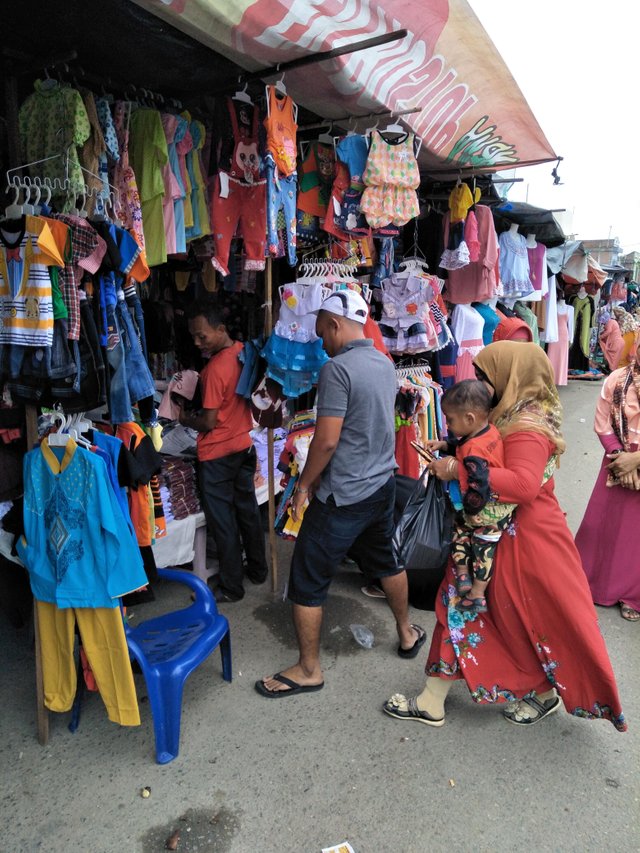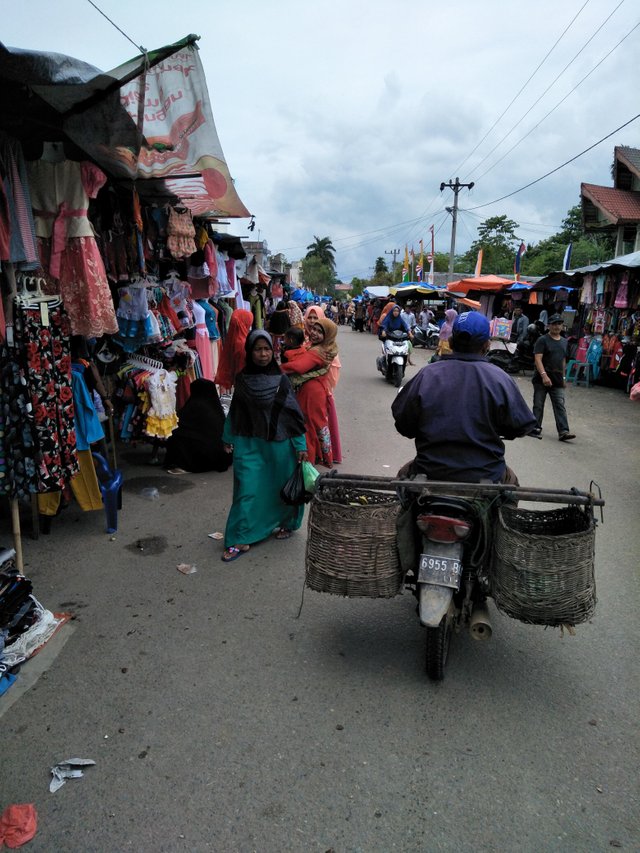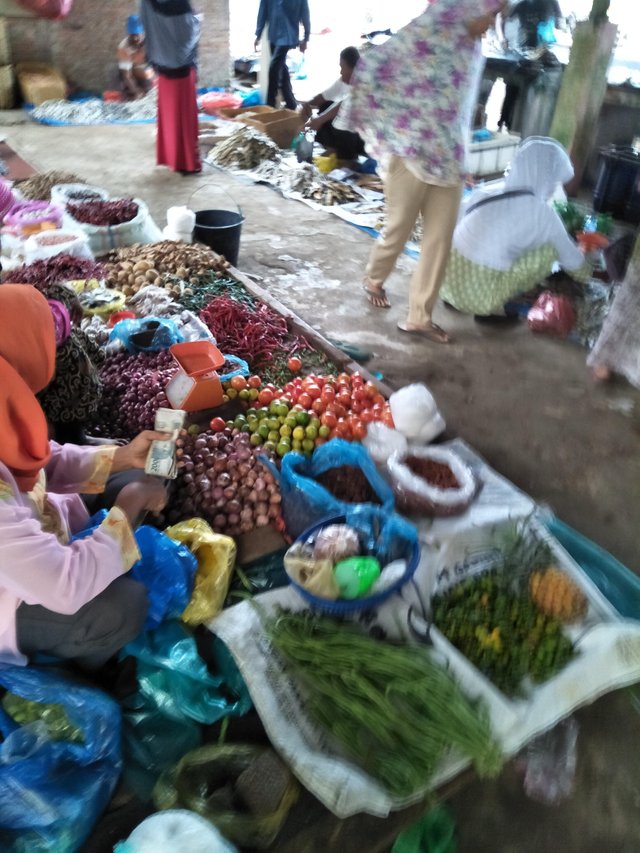
In "Uroe Peukan" not only economic transactions but also cultural transactions take place. Economic transactions mean there is a certain day that has been agreed for a week once the community down to the city. They bring the produce of the garden, the handicrafts and anything to sell to the city and buy everything they need for supplies for a week, waiting for the upcoming "Uroe Peukan", and so on.
This phenomenon of barter trade takes place in all people's markets throughout Aceh. There is no cash in circulation, but goods and commodities are changing hands. In principle they are willing and happy, because of mutual benefit.

This is in accordance with an adagium among the Aceh traders: Rugoe bak sira, laba bak kareung (sometimes loss from salt, but profit from anchovy). This indicates that barter-style transactions are mutually beneficial though without the use of cash.

Therefore, the presence of a modern market or an online market will not kill the people's market. Especially because the segments and goods provided are different from the goods sold in the people's market. Plus, barter transactions would be unlikely to be accepted by traders in modern markets and online markets.
Authors get paid when people like you upvote their post.
If you enjoyed what you read here, create your account today and start earning FREE STEEM!
If you enjoyed what you read here, create your account today and start earning FREE STEEM!